Teaching Activities: Vernacular Architecture and Contemporary Issues
ARH 311 ∣ Department of Architecture, University of Cyprus
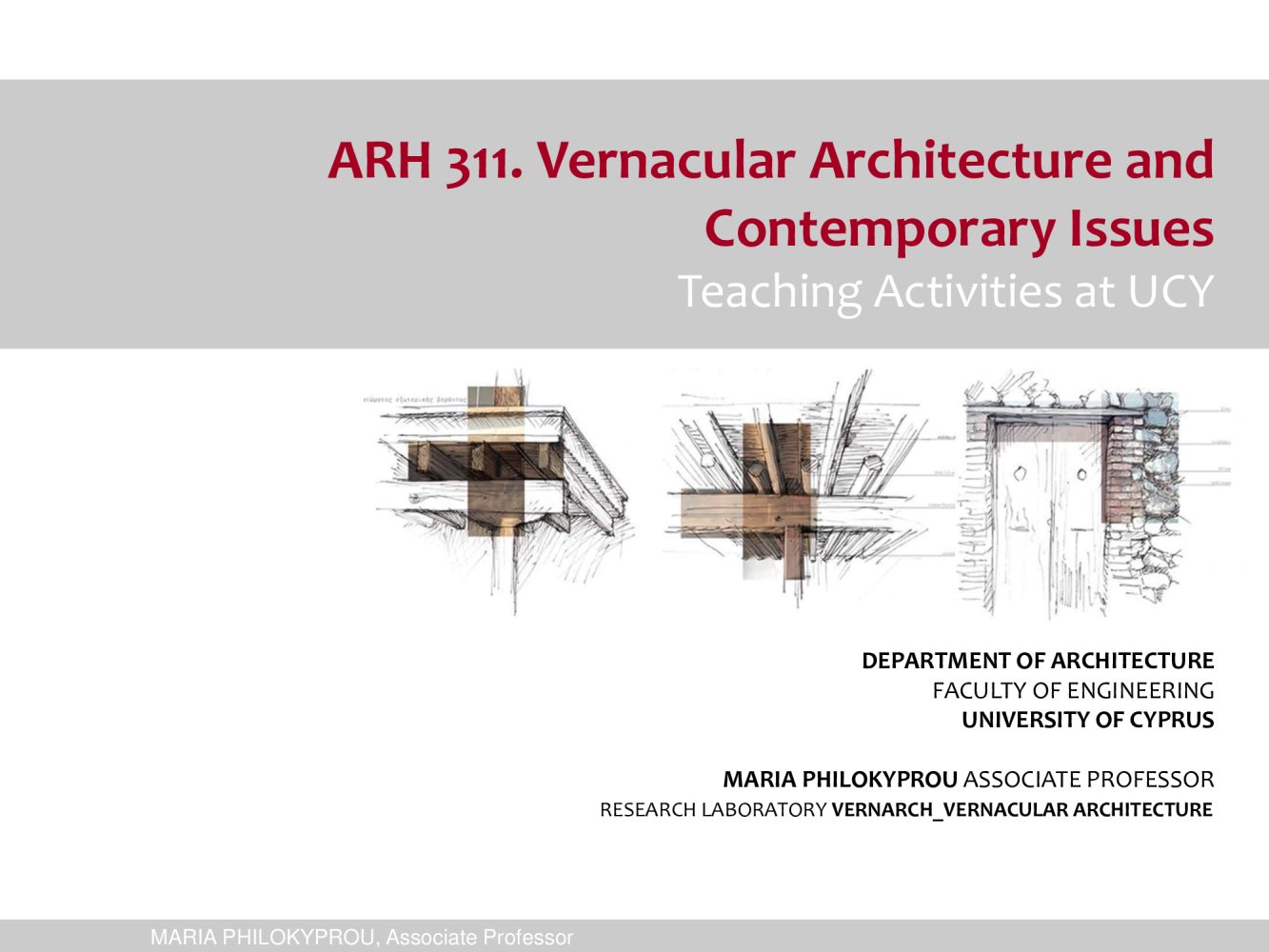
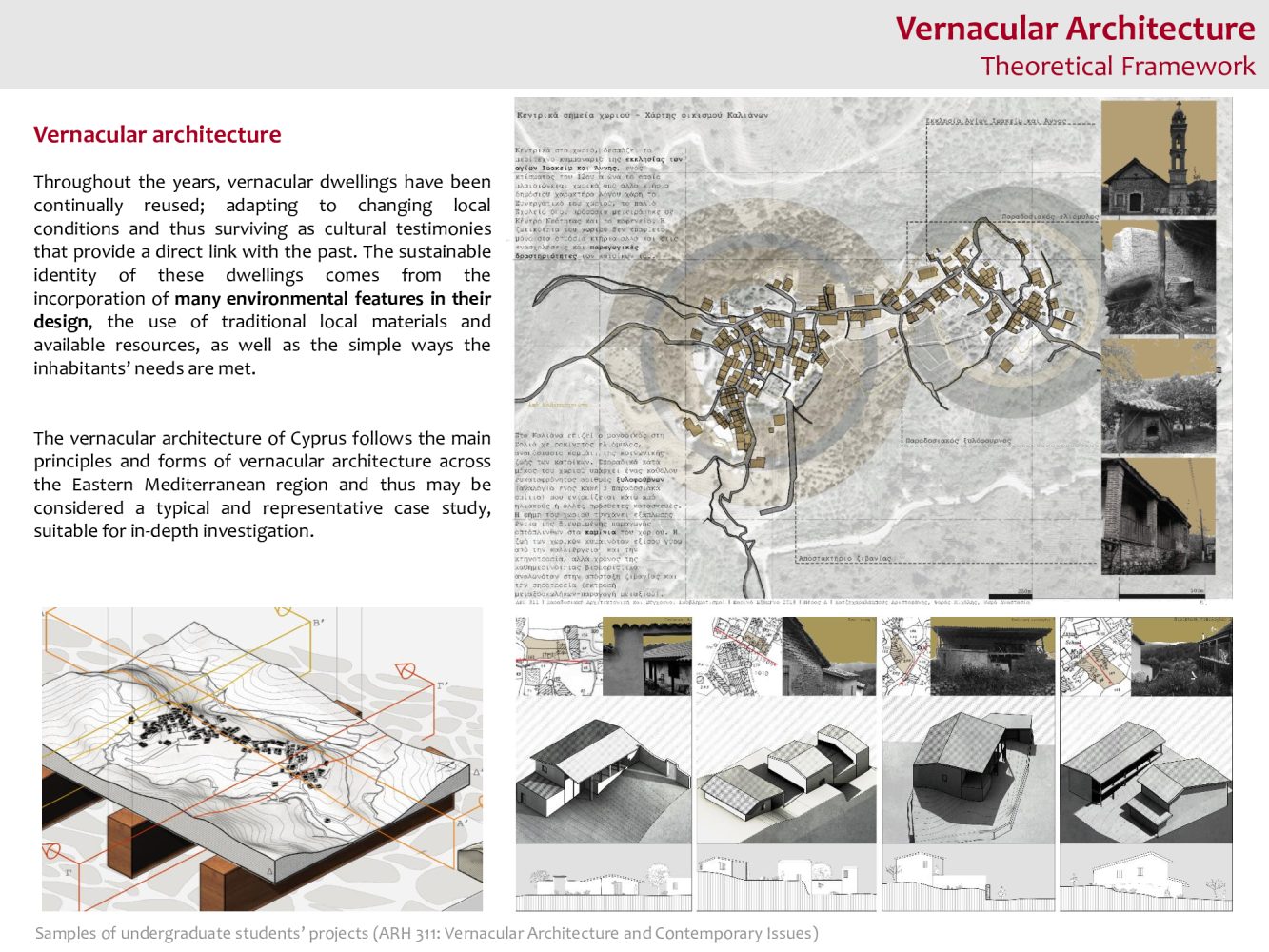
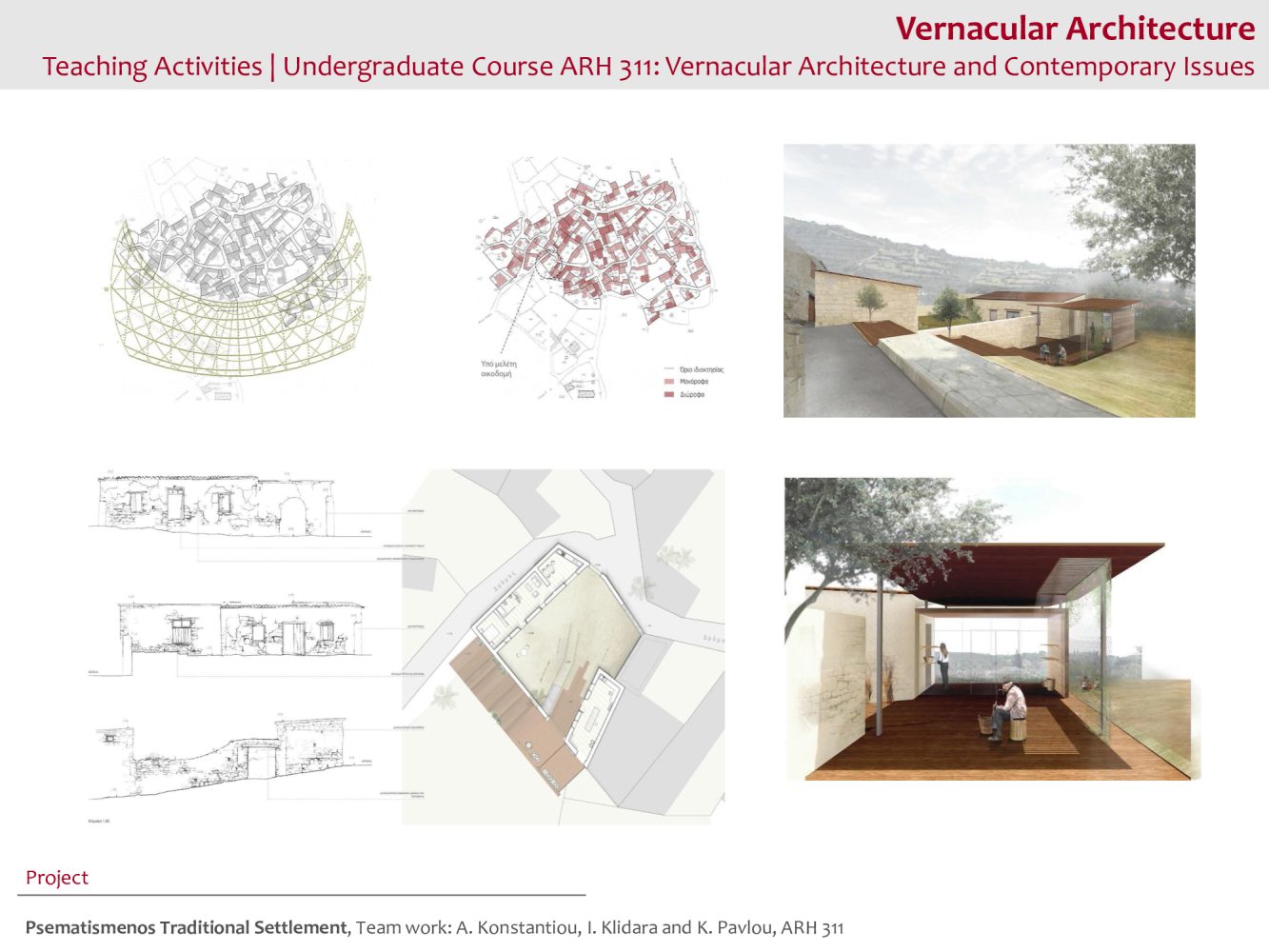
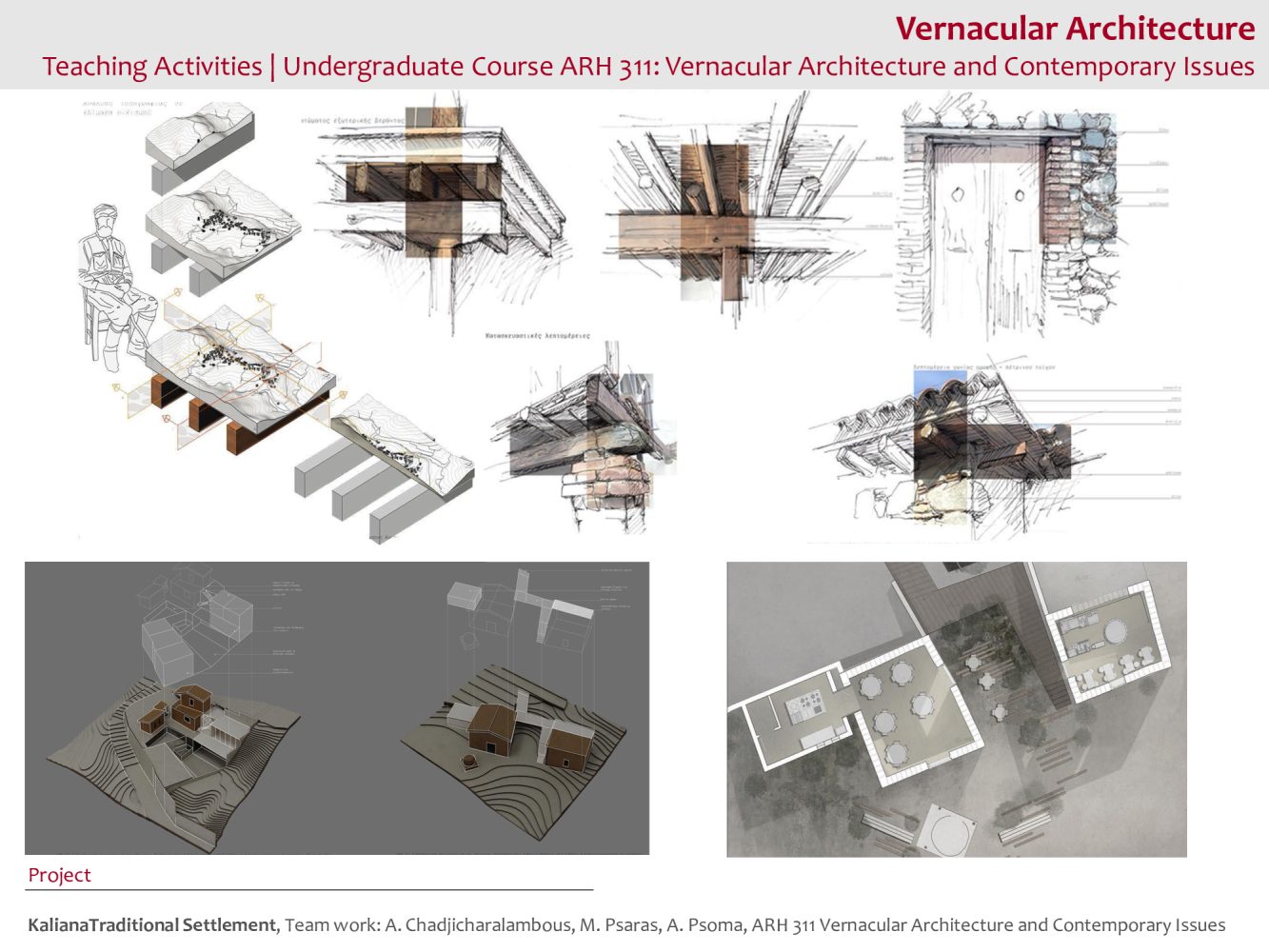
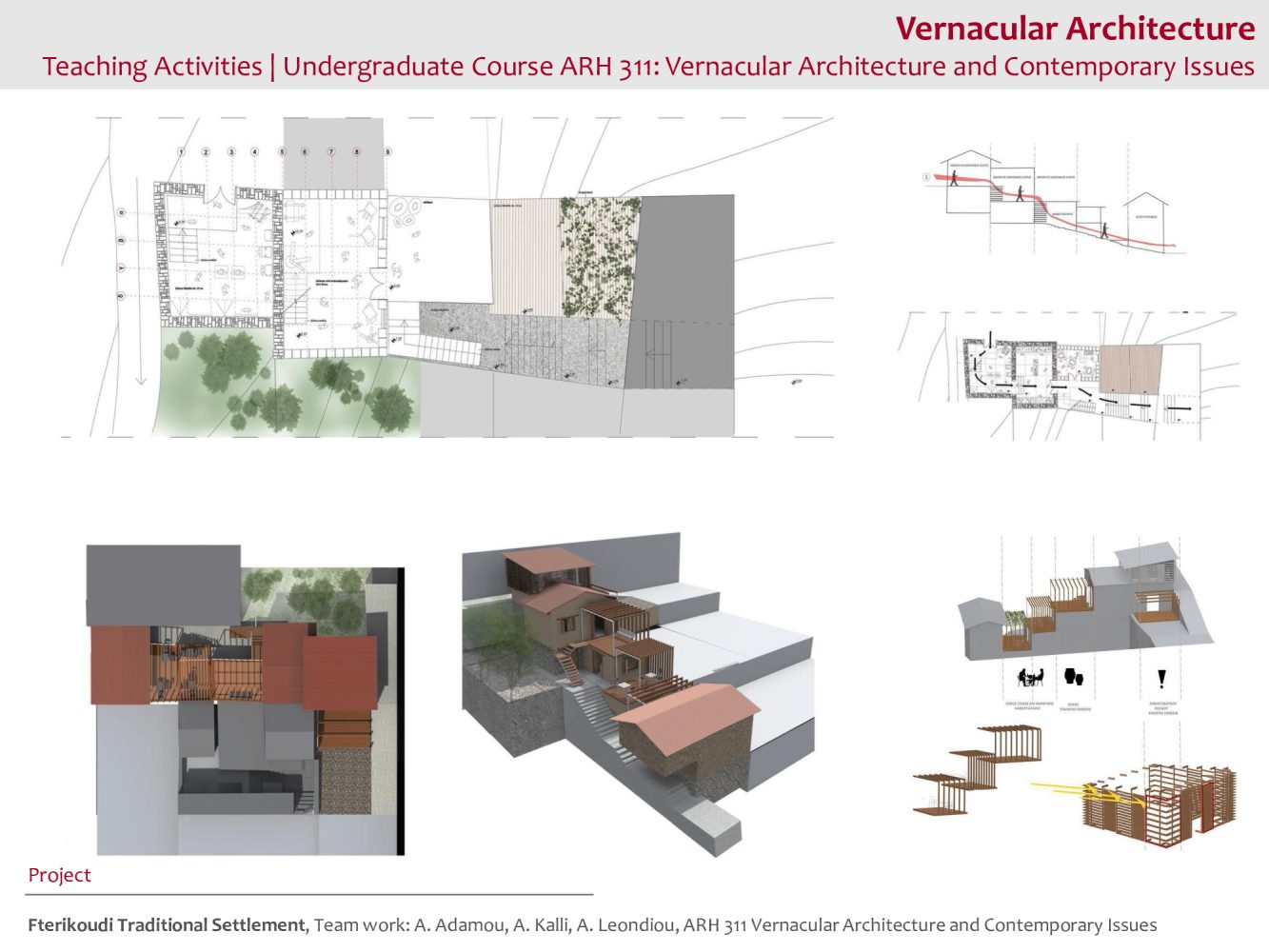
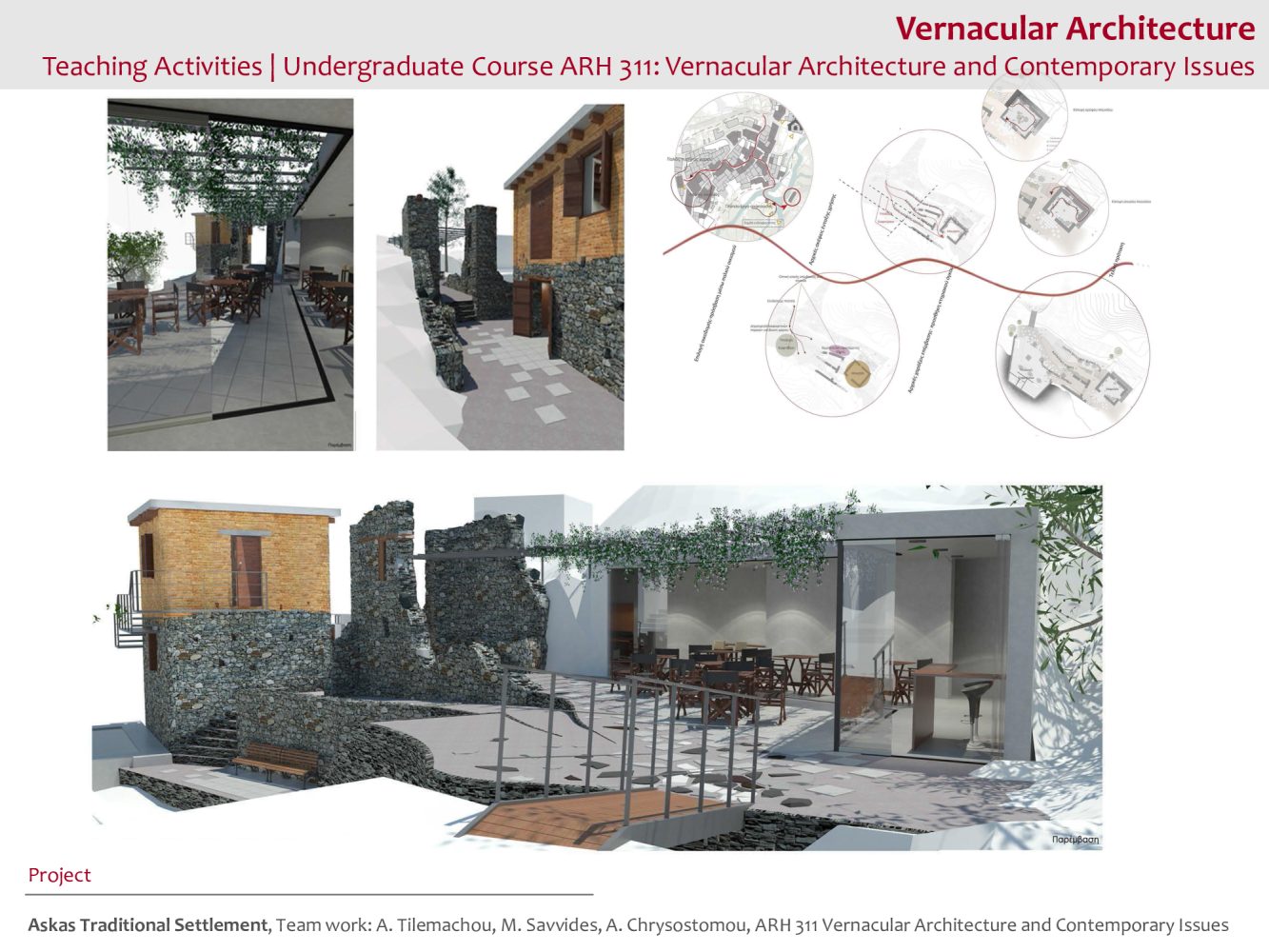
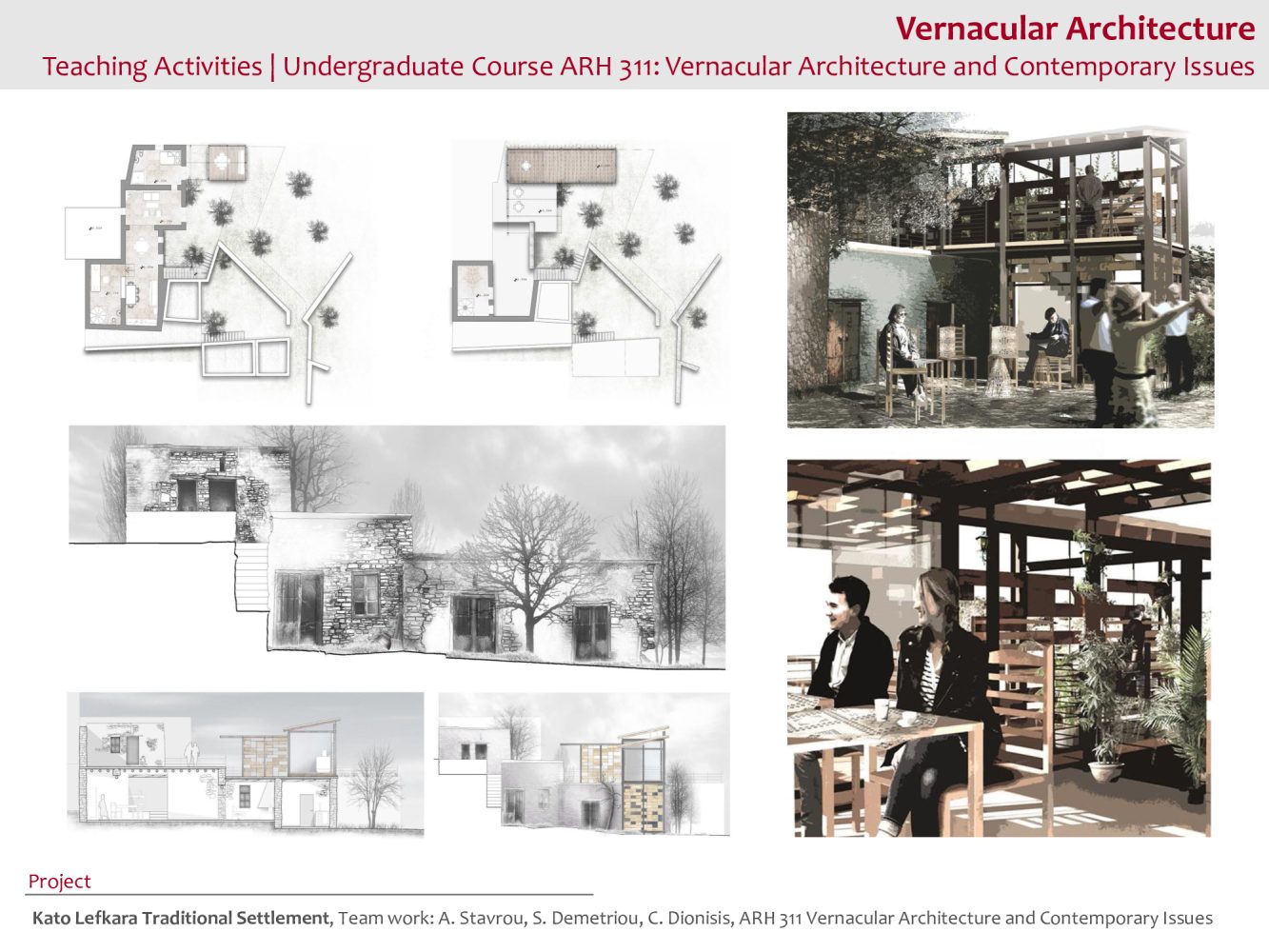
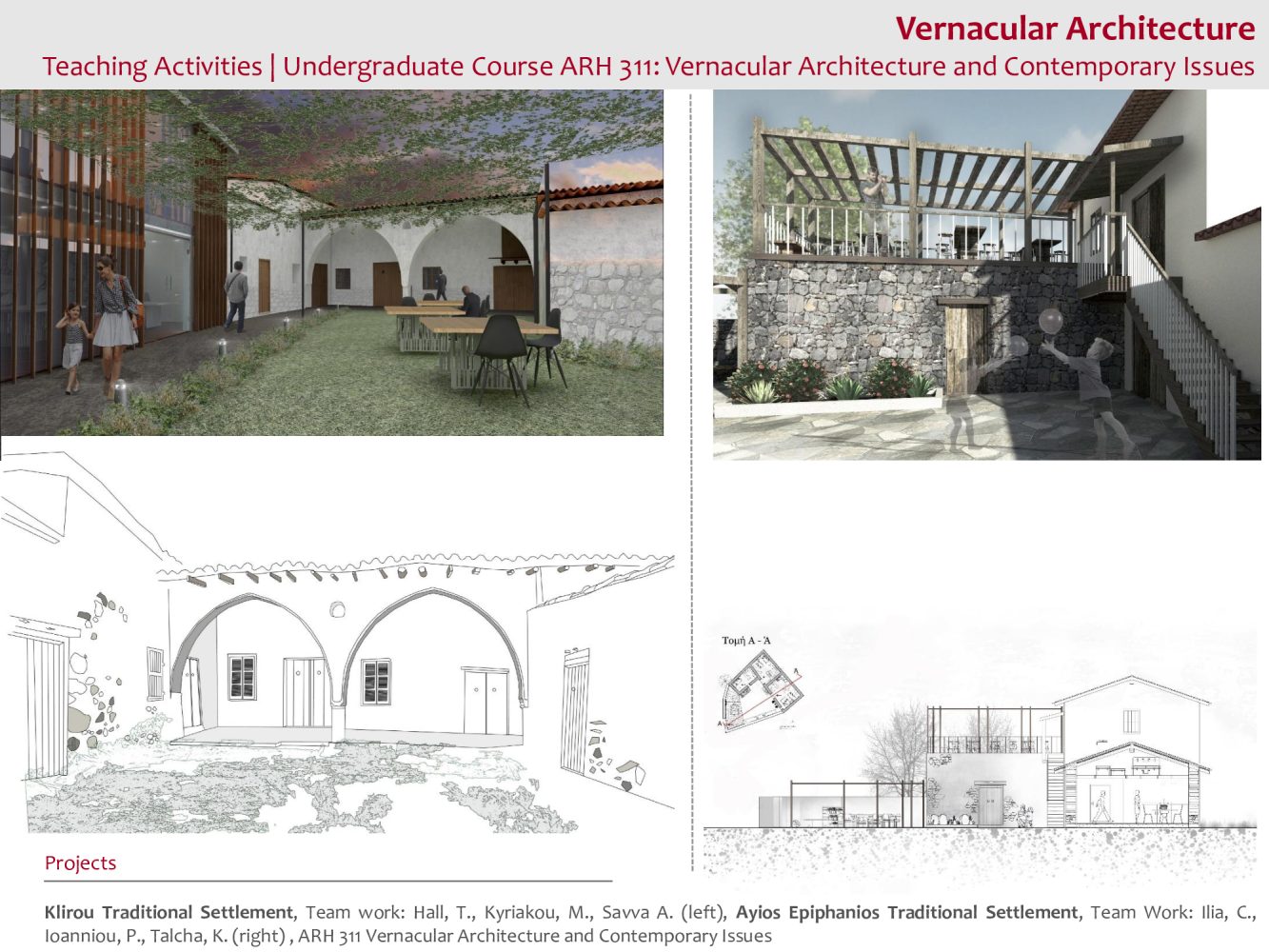
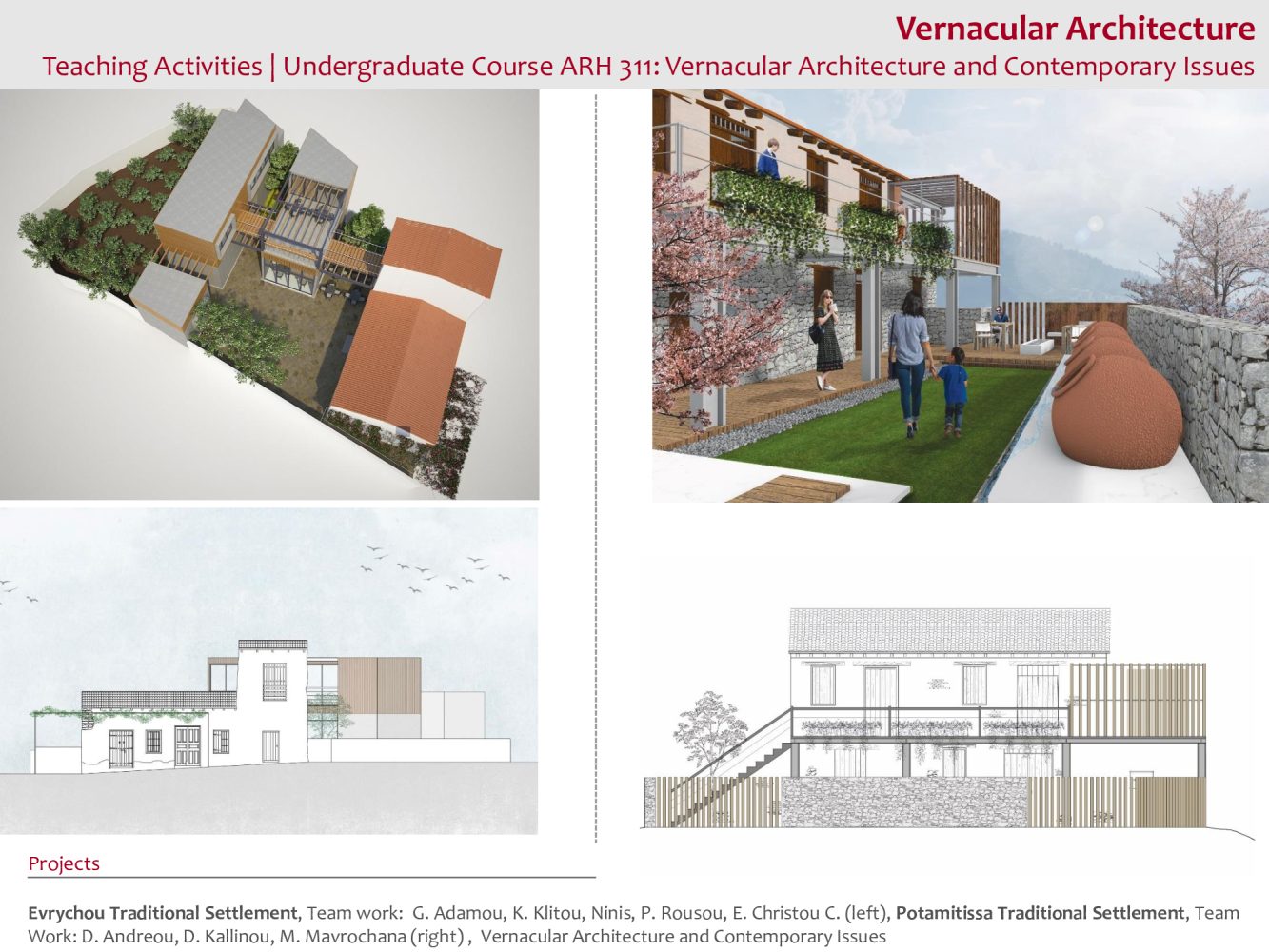
The course Vernacular Architecture and Contemporary Issues (ARH 311) is a compulsory course for the 3rd year students of the Department of Architecture, University of Cyprus. It includes analysis of rural traditional settlements (in the plains, in coastal areas, on the mountains and in semi-mountainous regions) as well as historic urban settlements of Cyprus and the Mediterranean region with reference to to-days situation.
In the first part of the course an in-depth study takes place with regard to the typology of Cypriot vernacular houses and the social, economic and climatic elements which influence its form and construction. At the same time comparisons and interrelations with the vernacular architecture of neighbouring countries are being examined. Basic bioclimatic design principles of the vernacular architecture are also being analysed.
The second part of the course deals with the theory and contemporary trends in conservation and reuse of vernacular dwellings, the pathology of constructions, the basic techniques for conservation, the protection and the design and adaptation of new uses in buildings and complexes. All the above are based on the general principles and methodology of a holistic protection approach of heritage buildings. Finally, the basic principles for design interventions that incorporate new buildings in existing traditional complexes are analysed.
The course includes theoretical teaching and analysis of relevant issues in the framework of group and individual projects which are essential for the development of critical thinking and research skills. The project consists of two phases. In the first phase of the project, each group of students selects and conducts an analysis of a traditional settlement (urban fabric, typology and morphology of dwellings, structural data, etc.). In the second phase, each group selects a vernacular dwelling that needs conservation, which is recorded through photographs and drawings, and prepares a scenario for the reuse of the dwelling. In the buildings selected, small scale interventions are proposed to accommodate the new uses. At the same time, contemporary structures are added which are distinguished from the existing vernacular dwellings but at the same time they strive to be in harmony with the traditional settlement.
The main aims of this course are the acquisition of knowledge in the understanding of vernacular architecture and the development of a research methodology for the investigation, analysis and protection of vernacular dwellings and traditional settlements. Through this course students develop the ability to recognize the architectural character of traditional settlements and also their social role. At the same time, they develop methodological tools for the study and recognition of the physiognomy of traditional settlements. They are trained in issues of conservation and the reuse of traditional buildings and settlements and they acquire the knowledge to recognise the pathology of traditional structures developing various methods of intervention in traditional complexes. They get familiar with the principles of overall protection of vernacular buildings and complexes and acquire the knowledge for the proper handling and incorporation of new buildings in sensitive traditional environments.